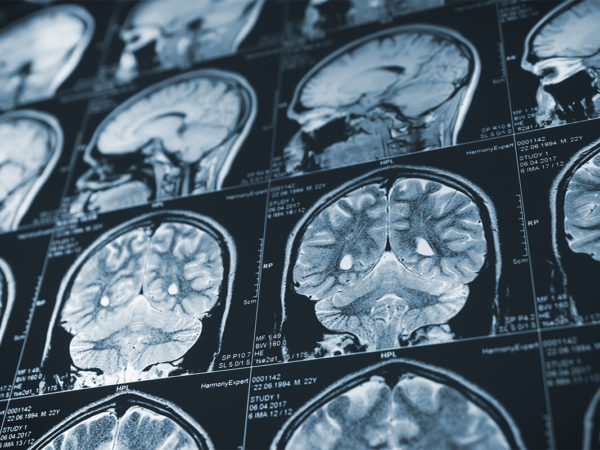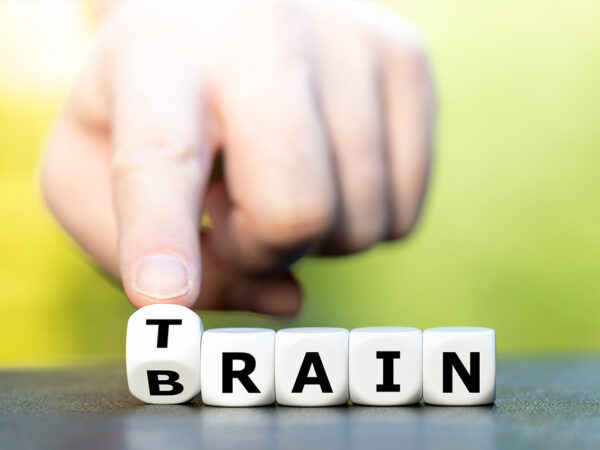Traumatic Brain Injury (TBI)
Traumatic Brain Injury (TBI) can occur when a sudden external physical assault damages the brain. It is one of the most common causes of disability and death in adults worldwide. TBI is a broad term that describes a range of injuries occurring to the brain. The damage can be confined to one area of the brain or can affect multiple areas. The severity of TBI can range from a mild concussion to a severe injury that results in coma, long-lasting cognitive difficulties, or even death.
Types of TBI:
- Closed Brain Injury: A nonpenetrating injury to the brain with no fracture in the skull. These injuries often result from rapid movement and shaking of the brain inside the skull, causing bruising and tearing of brain tissue and blood vessels. They are commonly caused by car accidents, falls, and sports injuries. Shaken baby syndrome is another form of closed brain injury.
- Penetrating (Open) Head Injury: An injury where there is a break in the skull, such as when a bullet pierces the brain. They are commonly cased by gunshot wounds, sharp object injuries, or other events where an object penetrates the skull and brain tissue.
Symptoms and Effects of TBI:
The symptoms and effects of TBI can vary widely depending on the severity and location of the injury. They may include:
Cognitive Deficits:
- Memory loss
- Difficulty concentrating
- Impaired judgment and reasoning
- Slowed thinking
Motor Deficits:
- Weakness or paralysis
- Poor coordination and balance
- Difficulty with fine motor skills
Perceptual or Sensory Deficits:
- Changes in vision, hearing, or sensation
- Difficulty with spatial orientation
Communication Deficits and Language Difficulties:
- Problems with speech and language comprehension
- Difficulty with reading and writing
Social Interaction Difficulties:
- Challenges with social cues and interactions
- Difficulty maintaining relationships
Personality and Mood Changes:
- Mood swings
- Depression and anxiety
- Irritability and aggression
Diagnosis of TBI:
Diagnosing TBI involves a thorough assessment that may include neurological exams to assess cognitive, motor, sensory, and perceptual functions. Imaging tests, such as CT scans and MRI, are used to detect brain abnormalities and determine the extent of the injury. Additionally, neuropsychological evaluations provide detailed assessments to understand the impact of the injury on cognitive and emotional functioning.
Treatment and Support for TBI:
Treatment for TBI depends on the severity of the injury and may include:
- Medications: To manage symptoms of pain, seizures, or mood disorders.
- Executive Functioning Support: Strategies to improve organization, time management, and cognitive flexibility, helping individuals with TBI manage their daily tasks more effectively.
- Rehabilitation: Includes physical therapy, occupational therapy, speech therapy, and neuropsychological counseling to address various deficits and improve functioning.
- Neurofeedback: A type of biofeedback that uses real-time monitoring of brain activity to teach self-regulation of brain function, potentially improving cognitive processes related to attention, memory, and emotional regulation.
If you or a loved one is experiencing difficulties related to a traumatic brain injury, please contact us to schedule an appointment or learn more about our treatment options.
INSIGHTS AND NEWS
Posts About TBI
Flying Under the Radar: How Unrecognized Traumatic Brain Injury Can Lead to Loss of Life
February 18, 2022 Blog
The time is now to discuss your health and here’s why. - In addition to...
How Neurofeedback Treats Traumatic Brain Injury, Anxiety, Depression, And More
January 19, 2021 Blog
Imagine if you and your therapist could actually see what your mental illness...
TESTIMONIALS
What Clients Say
“This place is amazing our son (6 at the time) was having problems at school. Thanks to their advice our son (now almost 8) is doing SO much better. I would recommend this place to anyone even considering an assessment for their child!”
J.B.
Parent
“The tests Dr. Goldstein used were very accurate in determining the correct concerns, plus he provided excellent advice on tools and resources in moving forward. Five Stars all the way!”
E.H.
Parent
“Our teacher suggested that we test our 8 year-old and we could not be happier with the process, the staff and the outcome. This was one of the best things we could have done for our daughter.”
P.B.
Parent
“Dr. Goldstein and his staff are very professional, patient and understanding about the entire process. Our family is very grateful to have found and highly recommend Cognitive Solutions Learning Center!”
L.M.
Parent
“Dr. Goldstein and the staff at Cognitive Solutions was the best. Dr Goldstein helped my son through the extensive testing, identify and explain his learning disability, along with giving him hope for a brighter future! Thank you.”
H.P.
Parent
“After observing my son demonstrating disruptive behavior, I was advised to take him to CSLC for testing. They were able to identify issues and offer realistic strategies to put him on the path to success.“
C.J.
Parent
“We have been patients of Cognitive Solutions for years. The evaluations are thorough without taking too much away from school. We would recommend for evaluations we well as learning specialist needs.”
M.B.
Parent



